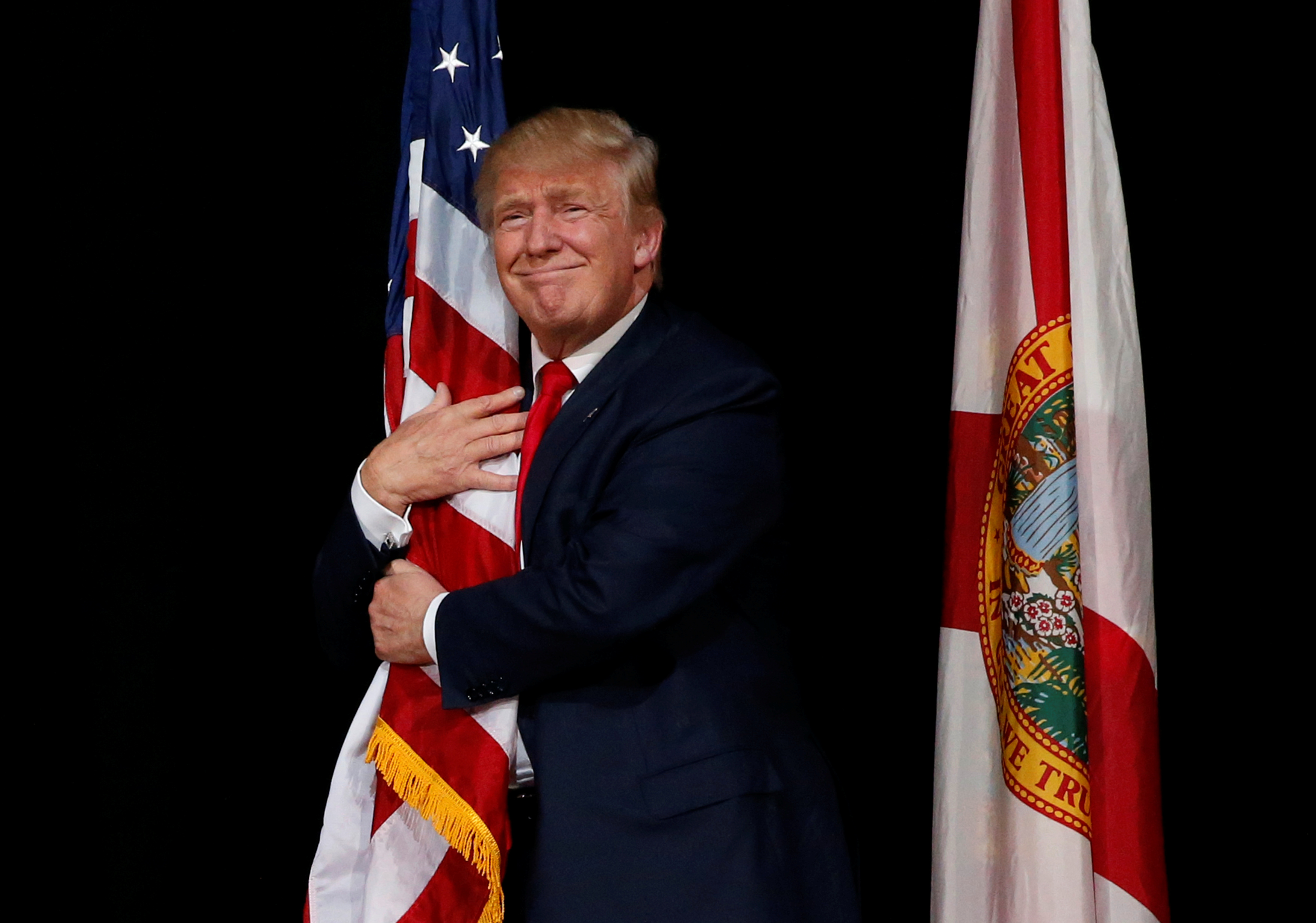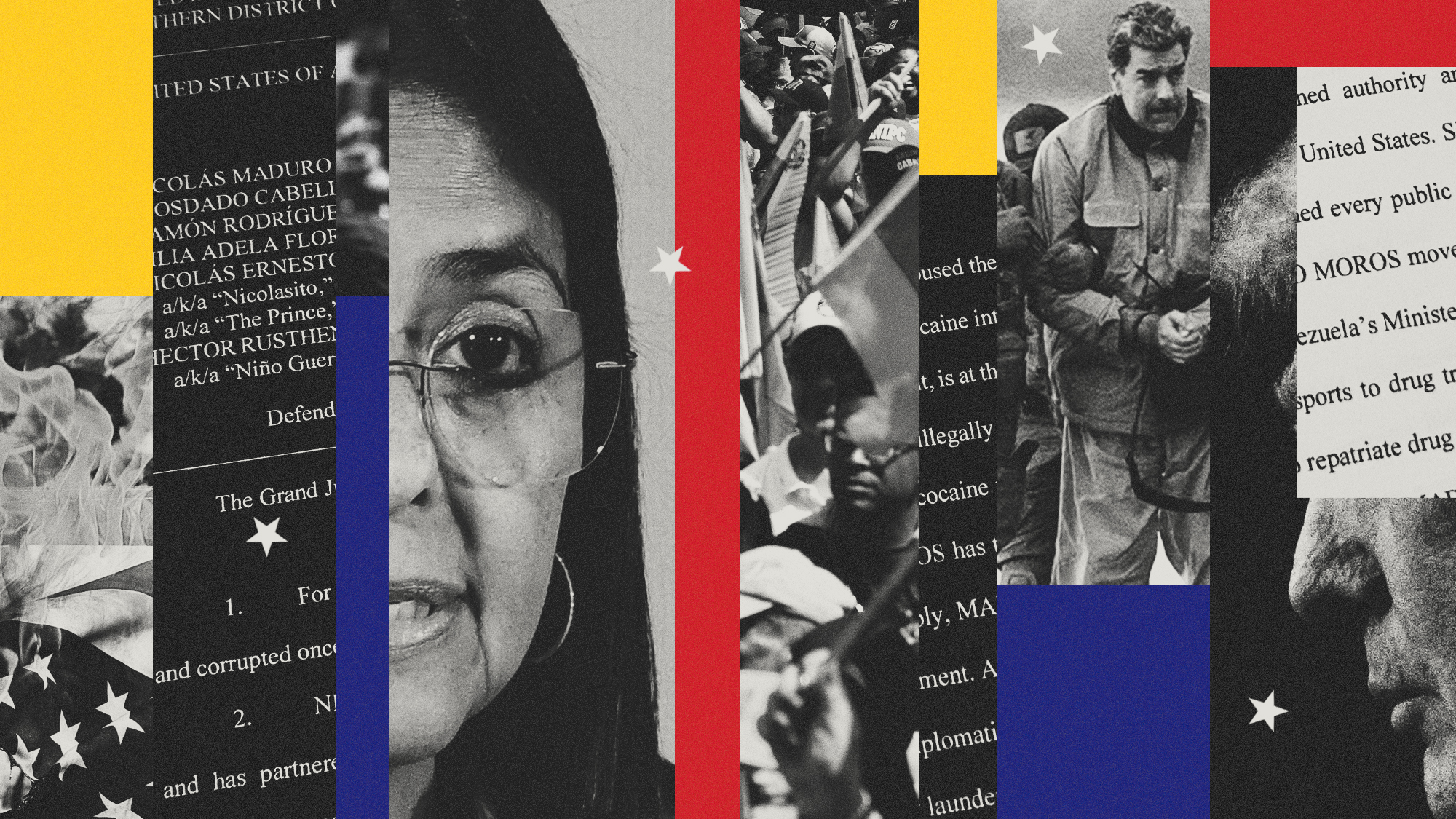What does normalize even mean?
Donald Trump's critics fear the "normalization" of a president-elect they see as anything but "normal"


Since the election of Donald Trump, the word normalize has gained considerable currency. Trump is not a normal president, his critics insist. Don't normalize him.
Outgoing Senate Minority Leader Harry Reid (D-Nev.) issued a statement warning against "normalizing a man who has threatened to tear families apart, who has bragged about sexually assaulting women, and who has directed crowds of thousands to intimidate reporters and assault African Americans." In The New York Times Magazine, Teju Cole decried "the unmistakable signs of normalization in progress." On Twitter, the hashtag #normalization often seems to be everywhere.
But what does normalize even mean?
The Week
Escape your echo chamber. Get the facts behind the news, plus analysis from multiple perspectives.

Sign up for The Week's Free Newsletters
From our morning news briefing to a weekly Good News Newsletter, get the best of The Week delivered directly to your inbox.
From our morning news briefing to a weekly Good News Newsletter, get the best of The Week delivered directly to your inbox.
These days, people are using normalize to mean "shift our perception of normal to include a thing previously seen as abnormal," rather than "change an abnormal thing to make it conform to a norm." This reveals the way we think about "normal": What is normal is so by common consensus and approval, and it is possible to expand or shift that consensus and approval to include a thing previously excluded.
But why don't we use standardize or regularize in place of normalize? We could conceivably use make ordinary, too. After all, standard, regular, and ordinary are synonyms of normal. We can use them interchangeably to refer to unexceptional things. But the thing about synonyms is that they don't really mean exactly the same thing. They've come into usage through different paths and are used in different ways in different places. Even where they seem to mean the same thing, they come at it from different angles. Words are known by the company they keep: what contexts they're used in, and what words they're used with. We learn these differences just through hearing and reading and using them. Repetition leads to acceptance; if we see something regularly, we come to view it as normal. And so we gain a sense for how you can and can't use a word without having to think twice about it.
Standard, for instance, has a whole set of uses that give it an exemplary sense. It first showed up in English in the 1100s to mean a flag or raised figure for leading and rallying troops. On that basis, by the 1400s it was being used to refer to an example that set the pattern for others: standard weights and measures. There has always been this sense of leadership, of something exemplary to conform to. Although we may refer to things that are no better than ordinary as "standard," such as standard accommodation, the point is that they meet the expected standard; they are not substandard. There may be a minimum standard, but it is always a thing you should not be below. We want a certain standard of living. We bewail declining or falling standards, and we think poorly of people who have low standards or double standards.
And so when we standardize something — testing, for instance — it involves making every instance of it the same in specified ways to meet the standard. To accommodate something nonstandard into the standard set of things, we either standardize it, meaning change it to meet the standard, or we change the standard — which is not the same as standardizing.
A free daily email with the biggest news stories of the day – and the best features from TheWeek.com
Regular, by contrast, comes from a Latin root referring to a rule or law, and it was first used in English in the 1300s and 1400s to refer to people who belonged to a monastic order. By the mid-1400s it was also being used to refer to something that was even, ordered, harmonious — a square, for instance, is a regular polygon, because its sides are all equal, as are its angles. And so we have the base character of regularity: repeated sameness. If you ask a person "Are you regular?" they might take it as an inquiry into their bowel habits (a usage of the word that first appeared in the late 1600s).
Regularity often comes through regulation. If something is irregular, it may not match the usual pattern, or it may be an uneven pattern (at irregular intervals). So if we regularize something, we enforce a certain evenness on it. We don't use regularize to mean "change what is seen as regular to include a formerly irregular thing" because regularity is considered an objective property: evenness is measurable.
Ordinary comes from a Latin root referring to order, and it is often defined using the word "regular." But it appeared in English first in the 1300s in reference to an official of the law or the church who had authority by virtue of his office, rather than by any special deputation or dispensation. Its sense expanded to take in a variety of things that are "just as one would expect": an ordinary day, ordinary people, ordinary life. While what is irregular is likely to be bad and not likely to be good, what is extraordinary is likely to be very good. Which means that ordinary is… not so great. Even out of the ordinary is as likely to be good as bad. Standard Oil is good, Regular Oil and Normal Oil sound like label descriptions rather than brand names, but Ordinary Oil would be terrible marketing.
You can make something ordinary by changing it to remove whatever is exceptional — but you can also make it ordinary just by making it common enough that it is no longer out of the ordinary, similar to what we're using normalize to mean now. The only problem is that there is no verb ordinarize. The related verb to ordinary is ordinate — but because this word originally referred to ecclesiastical or legal office, ordinate is now mainly a synonym for the related word ordain, although it has a more specific technical meaning in statistics. We also have the related verb coordinate — put things in order together.
Which brings us back to normalize.
Normal comes from a Latin root referring to a pattern or a standard. We talk about norms and conforming to the norm and such things, although the word norm has only been in use in English since the mid-1800s, while normal showed up in the 1500s. But normal doesn't have the freight of a specific use in the military, church, or law; from the beginning, it had the general sense (to quote the Oxford English Dictionary) "constituting or conforming to a type or standard." It doesn't set the standard; it conforms to it. It has a more positive tone than ordinary, as we can see from the fact that its antonym abnormal is in general a negative word. Since the early 1900s, paranormal has been used to refer to supernatural things, but it, too, posits the normal as accepted and tells us that things that are not normal may be eerie and frightening. If we are not under normal circumstances, we seek a return to normal so we can feel like our normal selves.
Normal is calming. And so normalization is calming. It can involve changing a thing so that it makes us calmer, or it can involve calming ourselves about a thing… whether or not we should.
James Harbeck is a professional word taster and sentence sommelier (an editor trained in linguistics). He is the author of the blog Sesquiotica and the book Songs of Love and Grammar.
-
 Venezuela’s Trump-shaped power vacuum
Venezuela’s Trump-shaped power vacuumIN THE SPOTLIGHT The American abduction of Venezuelan President Nicolás Maduro has thrust South America’s biggest oil-producing state into uncharted geopolitical waters
-
 Most data centers are being built in the wrong climate
Most data centers are being built in the wrong climateThe explainer Data centers require substantial water and energy. But certain locations are more strained than others, mainly due to rising temperatures.
-
 ‘Maps are the ideal metaphor for our models of what the world might be’
‘Maps are the ideal metaphor for our models of what the world might be’Instant Opinion Opinion, comment and editorials of the day
-
 Bari Weiss’ ‘60 Minutes’ scandal is about more than one report
Bari Weiss’ ‘60 Minutes’ scandal is about more than one reportIN THE SPOTLIGHT By blocking an approved segment on a controversial prison holding US deportees in El Salvador, the editor-in-chief of CBS News has become the main story
-
 Has Zohran Mamdani shown the Democrats how to win again?
Has Zohran Mamdani shown the Democrats how to win again?Today’s Big Question New York City mayoral election touted as victory for left-wing populists but moderate centrist wins elsewhere present more complex path for Democratic Party
-
 Millions turn out for anti-Trump ‘No Kings’ rallies
Millions turn out for anti-Trump ‘No Kings’ ralliesSpeed Read An estimated 7 million people participated, 2 million more than at the first ‘No Kings’ protest in June
-
 Ghislaine Maxwell: angling for a Trump pardon
Ghislaine Maxwell: angling for a Trump pardonTalking Point Convicted sex trafficker's testimony could shed new light on president's links to Jeffrey Epstein
-
 The last words and final moments of 40 presidents
The last words and final moments of 40 presidentsThe Explainer Some are eloquent quotes worthy of the holders of the highest office in the nation, and others... aren't
-
 The JFK files: the truth at last?
The JFK files: the truth at last?In The Spotlight More than 64,000 previously classified documents relating the 1963 assassination of John F. Kennedy have been released by the Trump administration
-
 'Seriously, not literally': how should the world take Donald Trump?
'Seriously, not literally': how should the world take Donald Trump?Today's big question White House rhetoric and reality look likely to become increasingly blurred
-
 Will Trump's 'madman' strategy pay off?
Will Trump's 'madman' strategy pay off?Today's Big Question Incoming US president likes to seem unpredictable but, this time round, world leaders could be wise to his playbook
